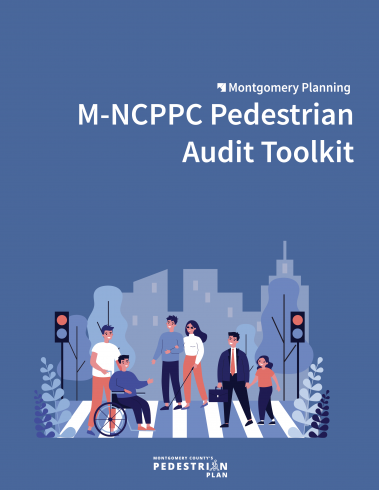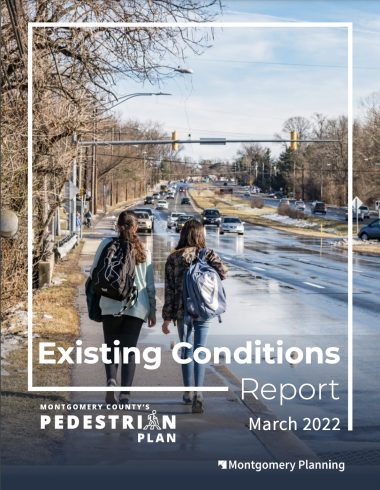Tools and Resources
Documents
Pedestrian Master Plan Planning Board Draft
Pedestrian Master Plan Climate Assessment
Pedestrian Conditions in Montgomery County Video Series
Project Manager Eli Glazier demonstrates some of the issues that pedestrians face when walking or rolling in Montgomery County.
Transcript of narrow sidewalks video
Transcript of accessible signals video
Transcript of curb ramps video
Transcript of crosswalks video
Transcript of development review video
Transcript of pedestrian experience video
Pedestrian Prioritization Tool
Montgomery Planning asked for your help to identify how and where you would prioritize pedestrian infrastructure improvements through our Pedestrian Prioritization Tool. This feedback helped inform equitable and data-driven decision-making on the Pedestrian Master Plan’s recommendations and its future implementation.
Pedestrian Shortcut Map
The Pedestrian Shortcut Map is part of the county’s first Pedestrian Master Plan aimed at making walking and rolling safer, more comfortable, convenient and accessible for pedestrians of all ages and abilities in all parts of the county. It is also an effort to understand what informal pedestrian connections – apparent in trodden grass, dirt or gravel on public or private property – exist in Montgomery County.
Pedestrian Level of Comfort Map
Pedestrian Level of Comfort (PLOC) was developed by the Montgomery County Planning Department together with Toole Design Group to quantify how comfortable people feel when they walk in certain traffic conditions.
Pedestrian Audit Toolkit

Use our interactive Pedestrian Audit Toolkit to identify areas in your neighborhoods in need of improvement. The toolkit also identifies the appropriate agencies to contact with your concerns.
Watch the September 28 Pedestrian Audit Toolkit Training video and download the presentation.
Existing Conditions Report

Pedestrian Master Plan Existing Conditions Report, March 2022: English | Español
Appendix A – Pedestrian Level of Comfort Methodology
Appendix B – Comfortable Connectivity (Part 1), (Part 2) and (Part 3)
Appendix C – Student Travel Tally
Appendix D – Countywide Pedestrian Survey
Staff contact
Eli Glazier
301-495-4548
Email